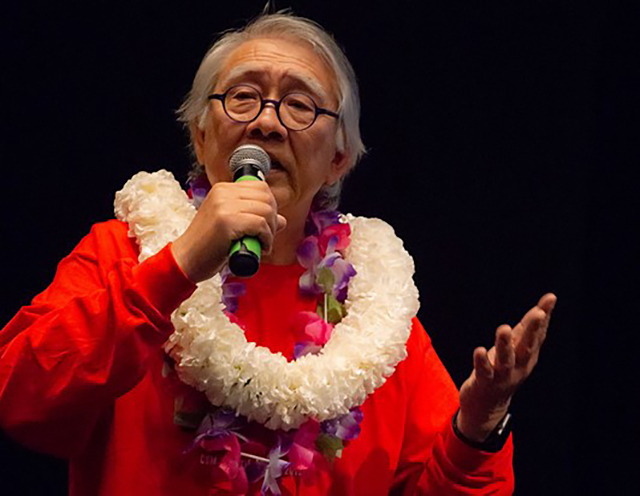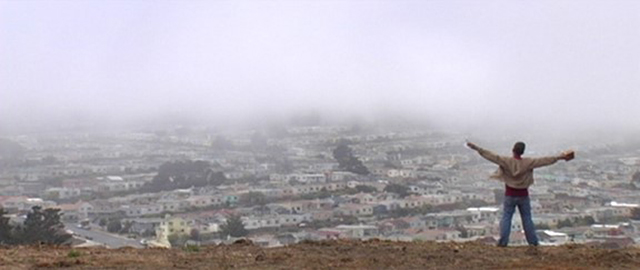Asian Pacific American Film Festival
CSM event now in 11th year showcases talent, culture, history and activism
A CSM ethnic studies professor’s dream of presenting the diversity of Asian Americans’ lives and interests has become one of the college’s most beloved institutions.
The CSM Asian Pacific American Film Festival, now in its 11th year and returning after two years’ absence due to COVID, offers CSM and the larger community a chance to meet emerging filmmakers and to engage with Asian American culture and activism in often-neglected forms.
“People see us being really successful and educated. That’s not a true picture of Asian Americans in the United States,” said CSM emeritus Prof. Lewis Kawahara, who retired in 2019 and handed festival operations to Ethnic Studies colleagues Professor Malathi Iyengar and Assistant Professor Seon-Hye Moon.
“One in seven San Mateo County residents is Asian American or Pacific Islander, but there are scenes, issues and other things happening in our community that other Asians may not know about,” Kawahara said. “I, and now us,”—referring to Moon and Iyengar—“wanted to show better representation of what we look like.”
Traditionally held the first week in May, the 2022 film festival is likely to be run virtually. It will screen films that organizers planned for 2020, but had to cancel because of the COVID lockdown.
“The posters were about to be printed when we went into shutdown mode,” Iyengar said. “We still have the films, though online is a different contract and we would have to go back to the filmmakers.”


Organizers want to plan a 2022 festival that would get maximum student and community attendance, and online might fill the bill, said Iyengar, who joined CSM’s Ethnic Studies department in 2017 and has worked on the festival since then.
Though the in-person events suggest a minimal donation, no one is ever turned away for lack of funds. Spoken-word and music performances have bracketed the live screenings, as have Q&A sessions with the filmmakers.
Kawahara got the idea for the festival soon after arriving at CSM more than 15 years ago. Its debut in 2010 had to wait for College Center Building 10’s completion, which complicated access on campus.
Then-College President Mike Claire helped arrange funds, as did the California Civil Liberties Public Education Program, set up to educate Californians about the concentration camps where Japanese Americans were held during World War II. The first two or three years were, Kawahara said, “concentration-camp heavy.”
Today, the films showcase a range of Asian Americans’ untold stories and their roles in the interconnectivity of today’s creative culture.
Our Man in Tokyo: The Ballad of Shin Miyata, screened in 2019, follows Miyata, a Tokyo native who moved to East L.A. to pursue his passion for Latino music, and who now bridges the Japanese and Latino music scenes by bringing Latino bands to tour in Japan.
Our Man’s director, Akira Boch, went on to win an Emmy in 2020 for his documentary Masters of Modern Design, about 20th century Japanese American artists and the effect that World War II had on their work.
Festival organizers like to spotlight Bay Area filmmakers, and in fact the festival’s arguably best-known directors are two College of San Mateo alumni.
Richard Wong and H.P. Mendoza, who met in CSM’s film program, screened their 2006 feature Colma: The Musical at the inaugural Asian Pacific American Film Festival in 2010.
Colma: The Musical, a coming-of-age story filmed in 18 days for $15,000, went on to win three awards at various festivals, a distribution deal, praise by the New York Times as “an itty-bitty movie with a great big heart,” and satisfying careers for both Mendoza, its composer and co-star, and Wong, its cinematographer.
Kawahara hopes showcasing their work and stories inspires the CSM community.
“I wanted people to know that you could go to a community college and you could make great films,” he said.

